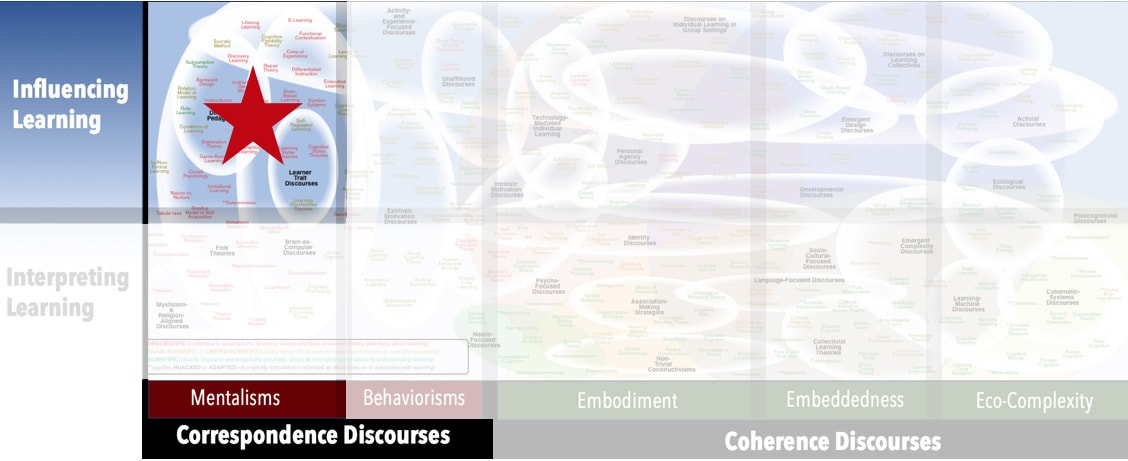Focus
Stages learners pass through on their way to masteryPrincipal Metaphors
Metaphors associated with learning are not explicitly stated within the Dreyfus Model of Skill Acquisition. Even though the Acquisition Metaphor is named in the model’s title, its figurative ground is the Attainment Metaphor:- Knowledge is … a territory/area/domain/field (typically involving challenge)
- Knowing is … attaining a goal
- Learner is … a seeker (individual)
- Learning is … journeying (arriving at, reaching, progressing, accomplishing, achieving)
- Teaching is … leading, guiding, directing, facilitating
Originated
1980sSynopsis
The Dreyfus Model of Skill Acquisition is focused on how learners develop skills, taking instruction and practice into consideration. The model parses the process into five or six distinct stages, depending on the version: Novice, Advanced Beginner, Competence, Proficiency, Expertise, Mastery. (Some versions omit either Advance Beginner or Expertise.)Commentary
The Dreyfus Model of Skill Acquisition has an intuitive appeal, but it lacks empirical evidence. That is, it may be little more than a formalization of common sense.Authors and/or Prominent Influences
Stuart Dreyfus; Hubert DreyfusStatus as a Theory of Learning
The Dreyfus Model of Skill Acquisition is a descriptive theory of learning.Status as a Theory of Teaching
The Dreyfus Model of Skill Acquisition is not a theory of teaching.Status as a Scientific Theory
The Dreyfus Model of Skill Acquisition is inattentive to its underlying metaphors and it lacks empirical support.Map Location

Please cite this article as:
Davis, B., & Francis, K. (2020). “Dreyfus Model of Skill Acquisition” in Discourses on Learning in Education. https://learningdiscourses.com.
⇦ Back to Map
⇦ Back to List
